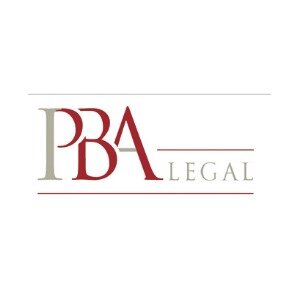Best Arrests & Searches Lawyers in Paris
Share your needs with us, get contacted by law firms.
Free. Takes 2 min.
List of the best lawyers in Paris, France
About Arrests & Searches Law in Paris, France:
The Arrests & Searches Law in Paris, France, falls under the French Penal Code and the French Code of Criminal Procedure. The law affirms the need for a necessary cause to perform an arrest, and restrictions exist to ensure law enforcement respects personal freedoms. In regular circumstances, an arrest must be conducted with a warrant unless the person is caught in a criminal act. Searches also have regulations and typically require the property owner's consent unless it pertains to an ongoing emergency or an individual is caught in the act.
Why You May Need a Lawyer:
Individuals may need a lawyer if they believe their rights were violated during an arrest or search operation. This could include cases where unnecessary force was used, there was no valid warrant, or their property was searched without consent. A legal professional can also be essential for those charged with a crime, as they can help build a defence strategy and ensure fair trial rights are upheld.
Local Laws Overview:
According to French law, a police officer can only detain an individual caught in the act of committing an offence, or who has been issued an arrest warrant by a judiciary authority. In most cases, a search can't be conducted without consent unless in immediate pursuit of a perpetrator or if a judicially authorized warrant has been obtained. The detention of suspected individuals cannot exceed 48 hours, and the detainee has a right to contact a lawyer and a family member.
Frequently Asked Questions:
1. What rights do I have during an arrest in Paris?
You have the right to remain silent and to seek immediate legal counsel. You can't be detained for more than 48 hours without a charge. Any mistreatment or discrimination is prohibited under French law.
2. Can the police search my house without a warrant?
Usually not, unless they are in direct pursuit of a criminal. However, in specific extraordinary circumstances related to national security or serious crimes, there may be exceptions. Legal advice should be sought if your home has been searched without a warrant.
3. Can I refuse a search on public transportation?
Public transportation hubs are governed by different rules that may allow security personnel to perform bag checks. It's recommended to seek legal advice in such cases for a clear understanding based on individual circumstances.
4. What should I do if I believe my rights were violated when I was arrested?
As soon as possible, consult with a lawyer who can guide you on the next steps. They might advise you to make a formal complaint or take legal action.
5. Can foreigners seek assistance from their embassies if arrested?
Yes, according to international law, any foreigner arrested can request that the local authority inform their embassy or consulate about their detention. That said, the role of the embassy is somewhat limited, and hiring a French lawyer is usually necessary.
Additional Resources:
For those needing legal assistance, you can consult the Paris Bar Association (Ordre des Avocats de Paris) or seek help from non-profit organizations like the Human Rights Watch or Amnesty International, which provide resources and advocate for the fair treatment of individuals during arrests and searches.
Next Steps:
If you're in need of legal assistance related to arrests or searches, the first step is hiring a lawyer conversant with French law. Ensure you provide your lawyer with every detail regarding your case, so they can help advocate for your rights. Remember to maintain a written record of all interactions related to your case for reference.
Lawzana helps you find the best lawyers and law firms in Paris through a curated and pre-screened list of qualified legal professionals. Our platform offers rankings and detailed profiles of attorneys and law firms, allowing you to compare based on practice areas, including Arrests & Searches, experience, and client feedback.
Each profile includes a description of the firm's areas of practice, client reviews, team members and partners, year of establishment, spoken languages, office locations, contact information, social media presence, and any published articles or resources. Most firms on our platform speak English and are experienced in both local and international legal matters.
Get a quote from top-rated law firms in Paris, France — quickly, securely, and without unnecessary hassle.
Disclaimer:
The information provided on this page is for general informational purposes only and does not constitute legal advice. While we strive to ensure the accuracy and relevance of the content, legal information may change over time, and interpretations of the law can vary. You should always consult with a qualified legal professional for advice specific to your situation.
We disclaim all liability for actions taken or not taken based on the content of this page. If you believe any information is incorrect or outdated, please contact us, and we will review and update it where appropriate.
















